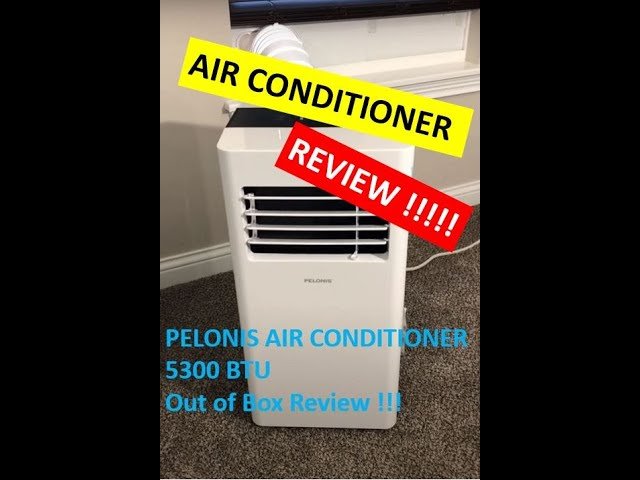Are Air Conditioners Bad For Cats? Debunking The Myth And Ensuring Your Feline’S Safety
Air conditioners are not bad for cats, but some precautions should be taken. Cats may be sensitive to extreme temperature changes, so gradual adjustments are recommended. Additionally, make sure the air conditioner is clean and well-maintained to prevent any potential harm to the cat’s respiratory system. Providing a comfortable environment with proper humidity levels is essential for a cat’s well-being.
When it comes to keeping our feline friends comfortable, it’s natural for cat owners to wonder about the potential effects of air conditioning on their pets. We want to ensure that our indoor environments are safe and supportive for our cats’ well-being.
But are air conditioners bad for cats? The answer may surprise you. As temperatures rise, we often rely on air conditioning to create a cool and comfortable environment for ourselves and our pets.
However, the impact of air conditioning on cats goes beyond just providing relief from the heat. Recent studies have shown that indoor air quality can have a significant impact on our cats’ respiratory health and overall well-being. Cats are known for their sensitivity to environmental factors.
Their respiratory systems are delicate, and the air they breathe can greatly affect their health. Poor indoor air quality, including pollution, allergens, and chemicals, can lead to a range of health issues in cats, such as respiratory distress, allergies, and even asthma. Understanding the potential risks associated with air conditioning and taking steps to mitigate them is crucial for cat owners who want to provide a safe and comfortable living environment for their furry companions.
Understanding the Impact of Air Conditioning on Cats
As cat owners, it’s essential to be aware of the potential effects of air conditioning on our furry companions. While air conditioning provides relief from the summer heat, it can also impact cats in various ways.
The Connection Between Indoor Air Quality and Cats’ Health
Cats are known for their sensitivity to environmental factors, and the quality of the air they breathe plays a crucial role in their health. Poor indoor air quality, which can be exacerbated by air conditioning, can have detrimental effects on our feline friends.
Respiratory Distress and Allergies
One of the primary concerns when it comes to air conditioning and cats is respiratory distress. Cats have delicate respiratory systems, and exposure to poor air quality can lead to breathing difficulties and respiratory ailments.
Allergens present in the air, such as dust mites, pollen, and pet dander, can trigger allergic reactions in cats. These allergies can manifest through symptoms like sneezing, coughing, watery eyes, and skin irritation. Air conditioning systems can circulate these allergens, exacerbating the issue.
Asthma Triggers
Asthma is a chronic respiratory condition that affects cats, just like it does humans. Air conditioning can contribute to the development of asthma or worsen symptoms in cats already suffering from this condition.
Certain substances commonly found in indoor environments, such as cleaning products, air fresheners, and cigarette smoke, can act as triggers for feline asthma. Air conditioning can circulate these triggers, leading to increased discomfort and health issues for cats.
Maintaining Ideal Indoor Air Quality for Cats
Fortunately, there are steps cat owners can take to mitigate the potential risks associated with air conditioning and maintain a healthy indoor environment for their feline companions.
Regular Air Filter Maintenance
One of the most crucial aspects of maintaining good indoor air quality is regular air filter maintenance. Air conditioning systems with clean and functioning filters help trap and remove allergens, dust, and pollutants from the air, reducing the risk of respiratory issues for cats.
Make sure to follow the manufacturer’s instructions for filter replacement or cleaning intervals. Additionally, consider using high-efficiency filters specifically designed to capture allergens and maintain cleaner air.
Ventilation and Fresh Air Intake
Allowing for proper ventilation and fresh air intake can greatly improve indoor air quality for both humans and cats. Open windows or use fans to facilitate the exchange of stale air with fresh outdoor air. This will help reduce the concentration of pollutants and allergens indoors.
However, do exercise caution if you live in an area with high levels of outdoor pollutants or allergens, as open windows can introduce these into your home.
Regular Cleaning and Dusting
Regular cleaning and dusting can significantly improve indoor air quality. Dust and allergens can accumulate on surfaces and in carpets, becoming potential triggers for respiratory issues in cats.
Vacuuming carpets, sweeping floors, and wiping down surfaces with non-toxic cleaning products can help keep indoor air cleaner. Consider using a vacuum cleaner with a high-efficiency particulate air (HEPA) filter to effectively trap and remove allergens.
Minimize Exposure to Harsh Chemicals
Many common household cleaning products, air fresheners, and even some scented candles contain harsh chemicals that can be harmful to cats. These chemicals can irritate their respiratory systems and contribute to poor indoor air quality.
Opt for natural, non-toxic alternatives when cleaning your home. There are numerous cat-friendly cleaning products available that are free from harmful chemicals.
Consider Investing in an Air Purifier
An air purifier can provide an additional layer of filtration, helping to remove allergens, pollutants, and odors from the air. Look for air purifiers with HEPA filters that effectively capture even microscopic particles.
Place the air purifier in commonly used areas or where your cat spends most of their time to maximize its benefits.
Seek Veterinary Advice
If you’re concerned about the impact of air conditioning on your cat’s health, it’s always a good idea to consult with your veterinarian. They can provide personalized advice and recommendations based on your cat’s specific needs and health conditions.
Remember, every cat is unique, and what works for one may not work for another.
Air conditioning can have both positive and negative effects on cats’ health, depending on how it is implemented and maintained. While air conditioning provides relief from the heat, it can also contribute to poor indoor air quality, which can impact cats’ respiratory health.
By taking proactive steps to maintain good indoor air quality, such as regular air filter maintenance, proper ventilation, and minimizing exposure to harsh chemicals, cat owners can create a safe and comfortable living environment for their furry companions.
Remember, the well-being of our cats should always be a top priority, and understanding the potential impact of air conditioning is an essential part of responsible pet ownership.
We bought an AC for the cats' room to keep them safe and comfortable during these hot days.
Frequently Asked Questions (FAQ)
Are air conditioners bad for cats?
Can air conditioners cause respiratory problems in cats?
Are there any specific precautions to take when using an air conditioner with cats?
Can cats get too cold from air conditioning?
What are the signs that my cat is uncomfortable due to the air conditioner?
Final Words: Protecting Your Cat’s Health in the Age of Air Conditioning
In conclusion, while air conditioning can provide relief from the summer heat, it is important for cat owners to understand the potential impact it can have on their furry companions. Cats are sensitive to environmental factors, and poor indoor air quality, which can be exacerbated by air conditioning, can have detrimental effects on their health.
Respiratory distress, allergies, and asthma triggers are some of the main concerns when it comes to air conditioning and cats. However, there are steps that cat owners can take to mitigate these risks and maintain a healthy indoor environment for their cats.
Regular air filter maintenance is crucial for trapping and removing allergens, dust, and pollutants from the air. Proper ventilation and fresh air intake can also improve indoor air quality by reducing the concentration of pollutants and allergens. Regular cleaning and dusting can help remove potential triggers for respiratory issues, and minimizing exposure to harsh chemicals in cleaning products is important.
Investing in an air purifier with a HEPA filter can provide an extra layer of filtration to remove allergens, pollutants, and odors from the air. It is always advisable to seek veterinary advice if you have concerns about the impact of air conditioning on your cat’s health. They can provide personalized advice and recommendations based on your cat’s specific needs and health conditions.






